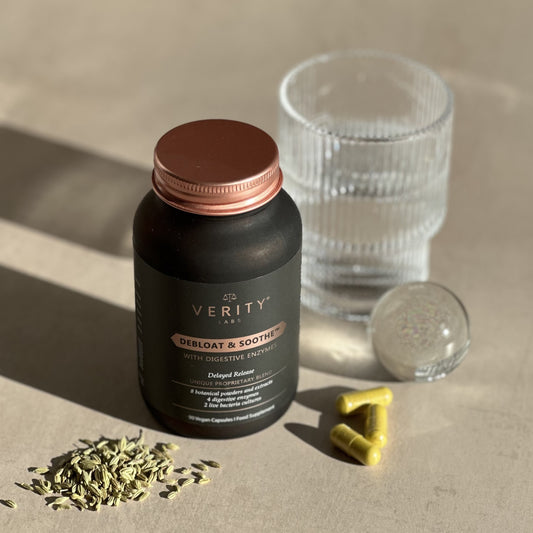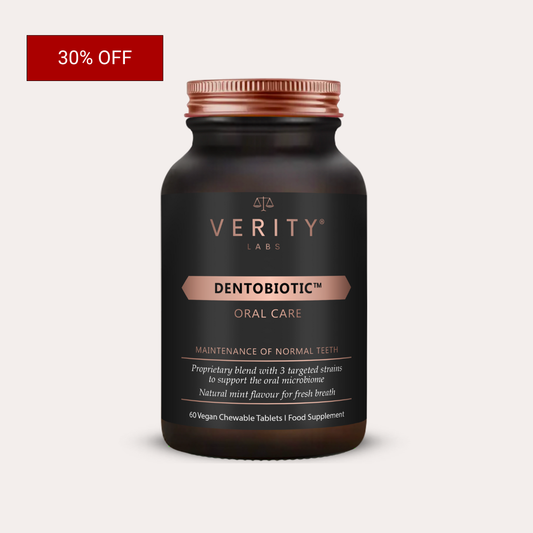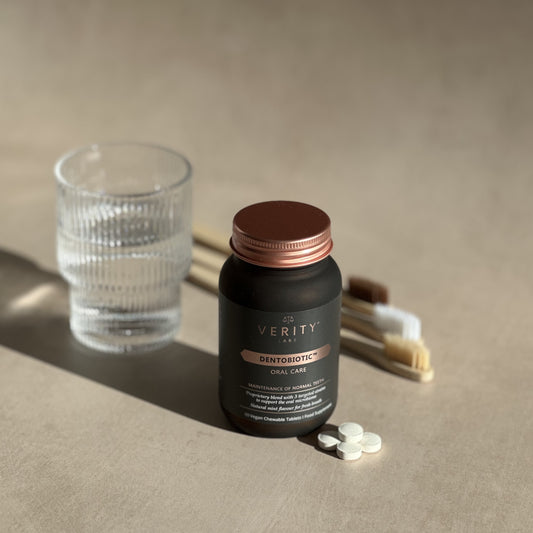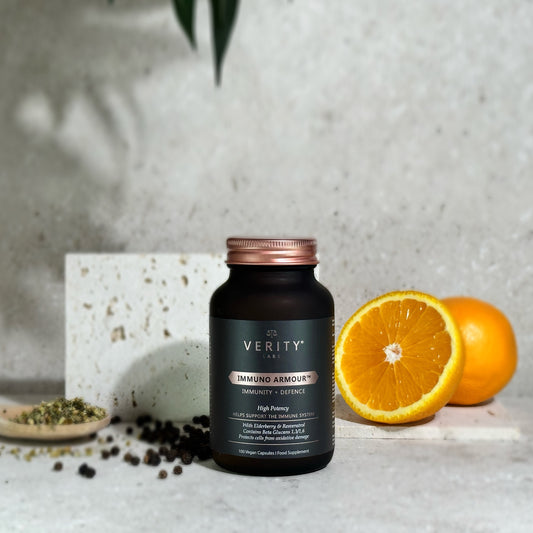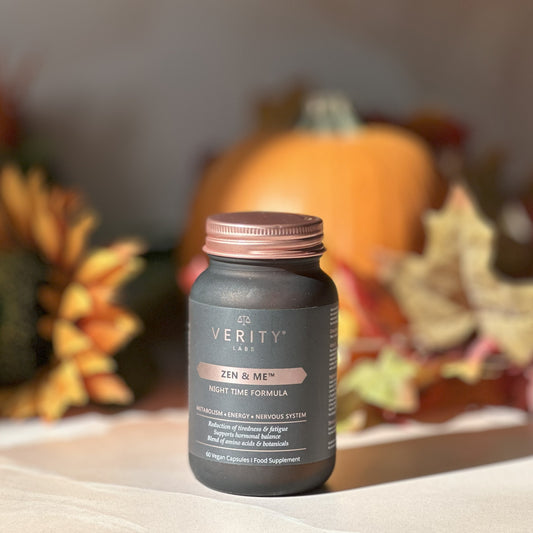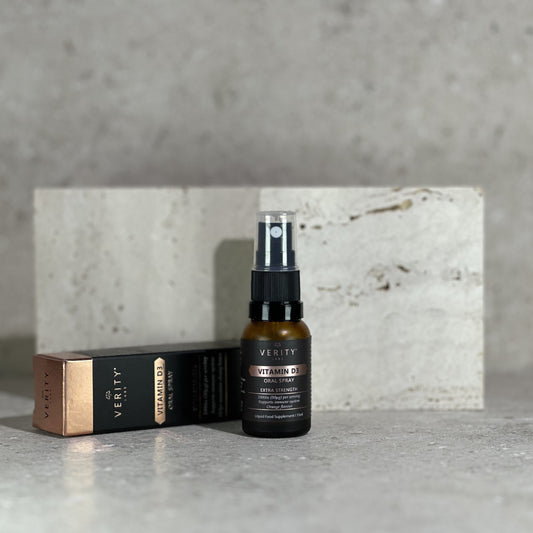Menopause marks a significant transition in a woman's life, bringing about various physiological changes due to hormonal shifts. While commonly associated with symptoms like hot flashes, mood swings, and sleep disturbances, menopause also impacts less-discussed areas such as the gut microbiome. Here we explore how menopause affects women's bodies, specifically focusing on changes in the gut microbiome, and provide practical tips for maintaining gut health during this stage of life.
Understanding Menopause and Its Impact on the Body
Menopause is the natural cessation of menstrual cycles, typically occurring between the ages of 45 and 55. This transition is characterised by a decline in the production of key reproductive hormones, primarily oestrogen and progesterone. These hormonal changes can lead to a variety of symptoms and long-term health impacts, including hot flashes, night sweats, mood swings, depression, sleep problems, weight gain, and bone density loss. Hot flashes and night sweats are sudden feelings of warmth, often accompanied by sweating and redness. Mood swings and depression are common due to changes in hormone levels affecting emotional well-being. Sleep problems, such as insomnia or disrupted sleep, often result from night sweats and hormonal fluctuations. Weight gain can occur as hormonal changes slow down metabolism and increase abdominal fat. Additionally, decreased oestrogen levels can lead to a reduction in bone density, increasing the risk of osteoporosis.
How Menopause Affects the Gut Microbiome
The gut microbiome is a complex community of trillions of bacteria and other microorganisms living in the digestive tract. It plays a crucial role in digestion, immune function, and overall health. Research indicates that menopause can significantly alter the composition and function of the gut microbiome. Estrogen has a profound impact on the gut microbiome, and its decline during menopause can lead to a reduction in beneficial bacteria and an increase in harmful bacteria. Menopause is often associated with increased levels of systemic inflammation, which can disrupt the gut barrier and lead to dysbiosis, an imbalance in the gut microbiota. Hormonal changes during menopause can also affect metabolism and insulin sensitivity, potentially leading to changes in the gut microbiome composition. Moreover, the psychological stress and mood swings common during menopause can impact gut health. The gut-brain axis, a bidirectional communication system, means that mental health can affect gut health and vice versa.
Maintaining Gut Health During Menopause
Despite the hormonal changes and potential challenges, there are several effective strategies to support and maintain a healthy gut microbiome during menopause. A balanced diet is crucial. Incorporating fibre-rich foods like fruits, vegetables, whole grains, and legumes promotes the growth of beneficial bacteria. Including probiotics and prebiotics in the diet is also beneficial. Foods like yogurt, kefir, sauerkraut, and kimchi contain probiotics, while prebiotics found in foods like garlic, onions, and bananas feed the good bacteria. Healthy fats, particularly omega-3 fatty acids found in fish, flaxseeds, and chia seeds, can reduce inflammation and support gut health.
Staying well-hydrated is essential for digestion and maintaining a healthy gut lining. Regular exercise promotes a healthy microbiome, helps manage weight, and reduces stress levels. Managing stress through techniques such as yoga, meditation, and deep breathing exercises can positively impact gut health. Adequate sleep, aiming for seven to nine hours of quality sleep per night, supports overall health and a balanced gut microbiome. Limiting processed foods and sugars is important, as these can promote the growth of harmful bacteria and contribute to inflammation.
In some cases, it is worth considering food supplements that possess anti-bacterial, anti-fungal and anti-inflammatory properties, probiotics and digestive enzymes that help digest lactose or complex carbohydrates. Our award-winning Debloat & Soothe supplement contain all of the above mentioned nutrients helping heal gut and restore its microbiome with no added preservatives or additives.

It is always advisable to consult with a healthcare provider to determine the best option. Regular check-ups and consultations with healthcare professionals are important to monitor overall health and make necessary adjustments to wellness plans.
Menopause brings about significant hormonal changes that can affect various aspects of a woman's health, including the gut microbiome. By understanding these changes and adopting strategies to support gut health, women can better navigate this transition. A balanced diet, regular exercise, stress management and adequate sleep are key components in maintaining a healthy gut microbiome during menopause. By taking proactive steps, women can support their gut health and overall well-being through the menopausal transition and beyond.
References:
https://www.thewomens.org.au/health-information/menopause-information/menopause-symptoms
https://www.nia.nih.gov/health/menopause/what-menopause
https://www.who.int/news-room/fact-sheets/detail/menopause
https://www.ncbi.nlm.nih.gov/pmc/articles/PMC4890704/
https://www.webmd.com/menopause/understanding-menopause-symptoms



